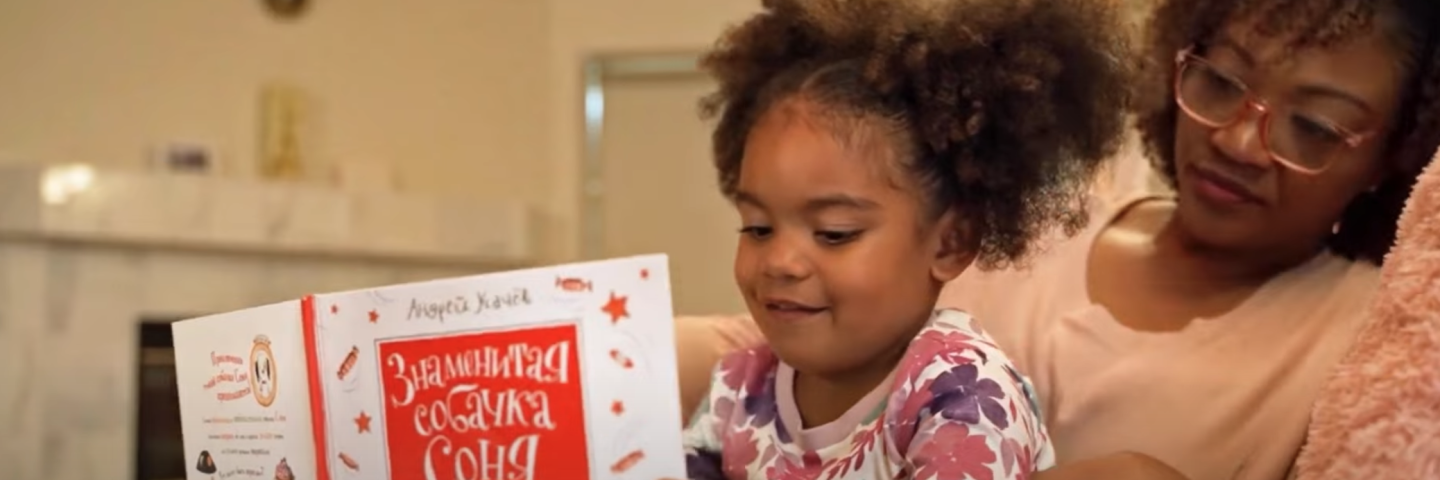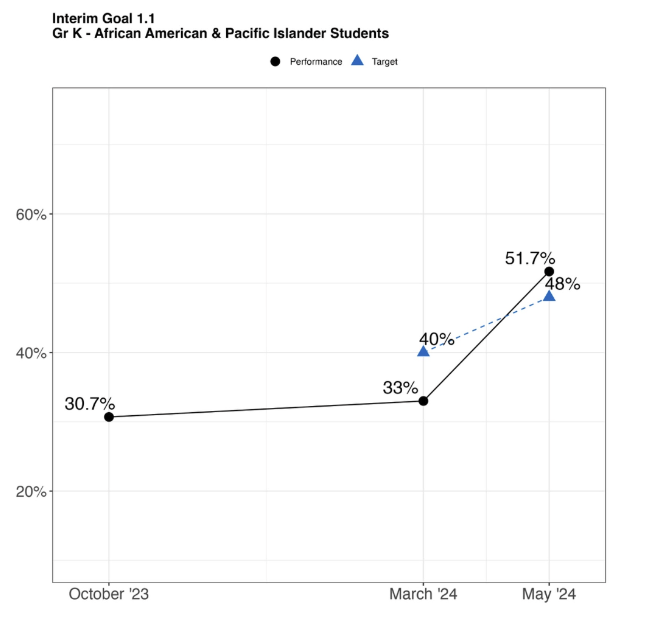SFUSD’s Each & Every Initiative Leads to Gains in African American and Pacific Islander Kindergarten Student Learning
Link to this section

Each and Every Initiative in SFUSD results in positive outcomes for students and families. View headlines about this Each and Every Initiative to learn more.
Learning from SFUSD Schools Link to this section
SFUSD’s success with the Each and Every by Name initiative offers a roadmap for how to improve outcomes and interrupt inequities that have persisted in SFUSD. This focus on educational equity prioritizes a student-centered, action-oriented, and results focused approach. The Each and Every by Name initiative is what this conception of equity looks like in practice.
In 2022, the SF Board of Education unanimously adopted a vision, values, goals, and guardrails (VVGG) that collectively serve as the SFUSD’s North Star. Interim Goal 1.1 states: “The percentage of African American and Pacific Islander Kindergarten students meeting grade level proficiency as measured by district interim tests (Star Early Literacy) will increase from 32% in October 2023 to 48% by May 2024.”
As of May 2024, at least 52% of African American and Pacific Islander Kindergarten students in the 2023-24 class scored meeting or exceeding grade-level proficiency on the Star Early Literacy assessment. This represents a statistically significant increase from the previous window (about +20%) and a greater increase as compared to other student groups. See the press release from June 12, 2024 for more details.

Additional press regarding the Each and Every by name initiative are listed below:
SFUSD Each and Every Press Release
Next Steps for School Staff Link to this section
Continuing to serve Black and Pacific Islander kindergarten and first-grade students at schools by:
Using Grade Level Collaboration, Instructional Leadership Teams, and Coordinated Care Teams to analyze data for Each and Every identified students in grade K and those who have moved to grade 1.
Participating in training for Amira and begin implementing Amira Tutoring.
Creating intentional time for our Each and Every identified students to engage with Amira.
Documenting and sharing your successful instructional practices.
Communicating the support and resources needed to accelerate student learning.
Promoting family partnership opportunities, such as the Family Book Club and information from the African American and Matua Parent Advisory Councils
Best Practices from Each & Every Teachers Link to this section
- Partnering with families to build on students' assets and support needs
- Providing systematic, structured literacy instructional routines and approaches
- Focusing on teaching grade-level literacy skills using whole group and small group instruction
- Analyzing and using assessment data regularly to inform and adjust instruction, and monitor progress
- Reflecting on teaching practice weekly, and studying data to identify activities making a positive impact
- Communicating with families weekly to share progress
- Planning collectively and intentionally with teachers, coaches, and school staff (e.g. principal, paraeducators)
- Using Amira (a supplemental high-impact tutoring program) for individualized literacy practice
Special thanks to the following Kindergarten teachers for sharing their best practices:
Victoria Bao (Bret Harte), Susan Lai & Ashley Harmon (Drew), Latayla Cooper (Cobb), Jessica Nuila (Sanchez), Gillian Schmitz (Miraloma), Angelica Bohall-Ortega (El Dorado), and Codion Isom (Malcolm X).
This page was last updated on November 14, 2024

